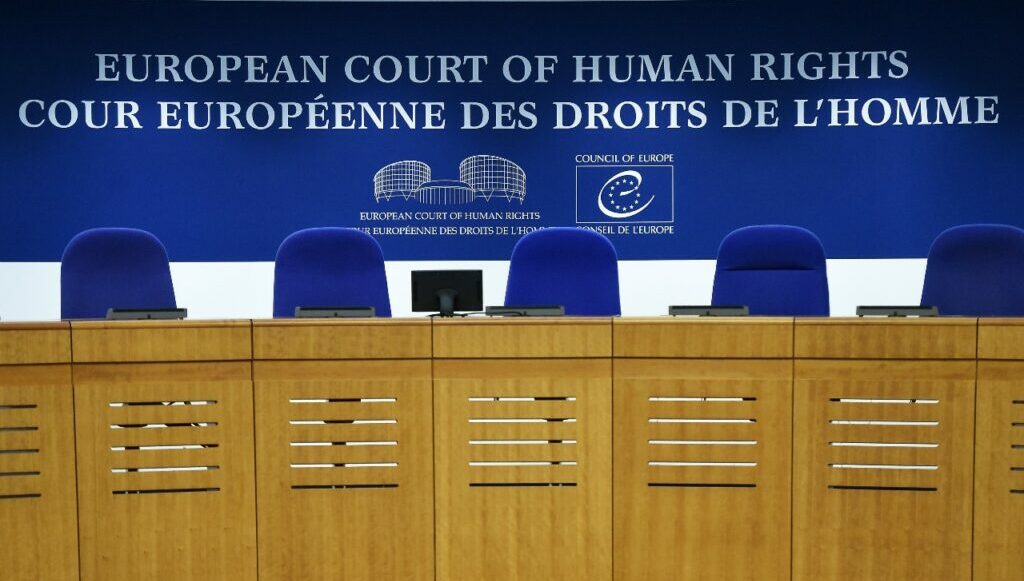Bünyamin Tekin
The Italian Federation for Human Rights (FIDU) said on October 14 in presenting an expert opinion in a case before the European Court of Human Rights (ECtHR) that the overly broad and vague wording of Turkey’s anti-terror legislation does not satisfy the quality of law and therefore is prone to arbitrary use.
Providing an expert legal opinion in the case of Gültekin Sağlam, one of the tens of thousands of people who have been arrested in Turkey since a coup attempt in 2016, FIDU said application of Article 314 of the Turkish Penal Code (TPC), used to press terrorism charges in post-2016 cases, is “not foreseeable by any reasonable individual.”

Answering Turkish Minute’s questions, Eleonora Mongelli, vice president of FIDU, said their legal opinion concerned the use of Article 314 of the TPC by Turkish authorities and the criminalization of the use of instant messaging application ByLock.
Turkey has considered ByLock, once widely available online, a secret tool of communication among supporters of the faith-based Gülen movement since a coup attempt on July 15, 2016 despite the lack of any evidence that ByLock messages were related to the abortive putsch, leading to the arrest of thousands who were using it.
The Gülen movement is accused by the Turkish government and President Recep Tayyip Erdoğan of masterminding the failed coup and is labeled a “terrorist organization,” although the movement denies involvement in the coup attempt or any terrorist activity.
“A total of 420,000 charges were filed under Article 314 of the TPC between 2013 and 2020, and 265,000 individuals to date have been sentenced under this article, while 92,769 individuals have been prosecuted for allegedly using the ByLock app,” Mongelli said, adding that Turkey’s abuse of the anti-terrorism law is steadily increasing and that it is “used extensively to silence Turkish human rights defenders and activists.”
Sağlam v. Turkey
Sağlam was arrested on July 23, 2016, a week after the attempted coup. On January 20, 2017 the public prosecutor of northwestern Kocaeli province submitted an indictment with the Kocaeli 2nd High Criminal Court charging him with membership in an armed terrorist organization and financing terrorism.
Sağlam’s use of the ByLock messaging application, his deposits into his bank account at Bank Asya, which was closed by the government following the coup attempt due to its links to the Gülen movement, and mobile phone records showing that he had been communicating with 24 individuals who had also been prosecuted for membership in the Gülen movement were presented as evidence by the prosecutor, the FIDU vice president said.
On February 20, 2018 the court found Sağlam guilty of membership in an armed terrorist organization and sentenced him to seven years, six months in prison.
In convicting Sağlam the court held that he had worked in various Turkish cities for companies affiliated with the Gülen movement, used the ByLock messaging application and deposited money into his bank account at Bank Asya.
Turkish courts have prosecuted thousands of people over their accounts at the bank, charging them either with membership in a terrorist organization or with aiding and abetting a terrorist organization.
“The list of variables that are being used to ascertain whether the individual concerned is a member of an armed terrorist organization consists solely and exclusively of either lawful activity and/or interactions with legally instituted entities, and/or in exercise of the rights and freedoms that are enshrined in the Turkish Constitution and the European Convention on Human Rights,” FIDU’s expert opinion concluded.
On April 20, 2018 the Second Criminal Division of the Istanbul Court of Appeals dismissed Sağlam’s appeal of the court’s ruling. The Supreme Court of Appeals upheld his conviction on December 25, 2018.
Turkey’s Constitutional Court on January 10, 2020 found Sağlam’s individual application inadmissible. Having exhausted domestic legal remedies, he lodged an application with the ECtHR.
Sağlam was one of the tens of thousands who were convicted of terrorism after the failed coup and could not find any legal remedy in Turkey.
“Turkey has the largest population of inmates convicted of terrorism-related offenses. According to a Council of Europe report, of a current total of 30,524 inmates in COE member states sentenced for terrorism, 29,827 of these are in Turkish prisons,” Mongelli said.
‘Turkish law is vague, unforeseeable’
“The principle of no punishment without law requires that the legal provisions be concrete and that any reasonable individual can understand what is forbidden and what would happen if he commits an offense,” Mongelli said, answering a question as to whether convictions stemming from Article 314 of the TPC can be considered legal in light of the FIDU opinion.
“Turkish law is vague, unforeseeable, and its application is not consistent. When it is coupled with the government’s control of the judiciary, its application changes according to political trends. So, yes, It may not be considered legal.”
ByLock cases violate principle of equality of arms
According to FIDU, “… the procedures and methods used by the Turkish courts in Bylock cases are not in compliance with the principle of the equality of arms …” a principle that requires that there be a fair balance between the opportunities afforded to the parties involved in litigation.
“First, there is no guarantee that the ByLock data was not corrupted,” Mongelli said. “Second, defendants and their lawyer were given no opportunity to examine the evidence.”
She added that despite several reports strongly indicating Turkish intelligence manipulated the evidence in question, requests by defendants facing charges over their use of ByLock to commission an expert panel to examine the evidence were denied.
In 2017 Turkey’s Supreme Court of Appeals found the use of ByLock to be sufficient evidence for terrorist organization membership. Since then, the appeals court has upheld hundreds of sentences passed by local courts based mainly on ByLock use without checking to see if the user had any message content or if the messages had any criminal content.
The Constitutional Court, too, found no violation of rights of the applicants who were sentenced merely based on ByLock use, which it had considered a strong indication for arrest.
In July of this year, the ECtHR ruled in the case of a former police officer that use of the ByLock application is not an offense in itself and does not constitute sufficient evidence for arrest.
The Strasbourg court’s ruling has come as a source of hope for thousands of people who were arrested or sentenced on terrorism charges based mainly on a National Intelligence Organization (MİT) report that detailed users of ByLock.
Mass detentions and arrests have been taking place in Turkey since the 2016 coup attempt. Critics accuse Erdoğan, who embarked on the massive crackdown on the opposition after the coup attempt, of using the incident as a pretext to quash dissent.
